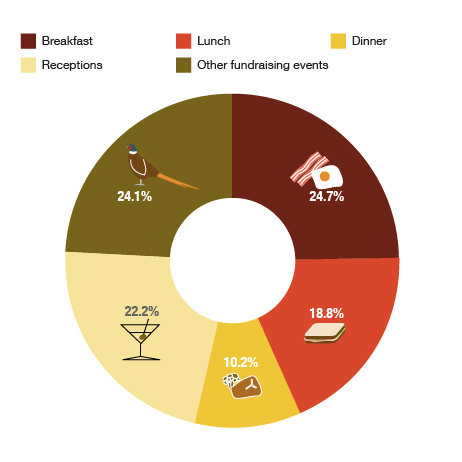
<a href="http://www.flickr.com/photos/hikingartist/5727282498/">Frits Ahlefeldt-Laurvig</a>/Flickr
For the first installment of a new weekly feature, here’s a quick look at the week that was in the world of political dark money:
Dudes dominate super-PAC giving: No surprise here: Super-PAC contributions, like certain magazine award nominations, are dominated by men. The Houston Chronicle reported that women account for just 14 percent of super-PAC donors, citing it as an example of the “link between the underrepresentation of women in the political money chase and the underrepresentation of women in U.S. elected office.”
Colbert wins award for dark-money mockery: On Wednesday’s Colbert Report, Stephen announced that his show had won a Peabody award for it satirization of super-PACs. To poke fun at the runaway campaign spending following the Citizens United ruling, the Colbert Report founded its own super-PAC, Americans for a Better Tomorrow, Tomorrow, which ran bizarro political ads in early primary states.
The Colbert Report
Get More: Colbert Report Full Episodes,Political Humor & Satire Blog,Video Archive
Romney hires GOP guru: As MoJo‘s Andy Kroll reported, Ed Gillespie, the man who created the powerhouse American Crossroads super-PAC with Karl Rove, has hopped aboard Mitt Romney’s presidential campaign. The move calls into question the supposed ban on coordination between super-PACs and candidates’ campaign operations.
“Take the Money and Run for Office”: Last week’s episode of This American Life explored the world of campaign finance. Senator John McCain (R-Ariz.) and former Senator Russ Feingold (D-Wisc.) discussed the campaign reform bill they championed, which the Supreme Court ultimately ruled unconstitutional. NPR’s Planet Money blog published a companion piece charting the delicious ways politicians woo megadonors.
 Appetite for seduction: Congressional fundraisers, by meal NPR
Appetite for seduction: Congressional fundraisers, by meal NPR
Romney’s radioactive supporter: Texas billionaire Harold Simmons, who has pumped at least $700,000 into the pro-Romney Restore Our Future super-PAC, is pressuring the Nuclear Regulatory Commission to allow him to dump radioactive materials including depleted uranium into his giant West Texas landfill. The “King of Superfund Sites” is hoping for Republican victories in November, having invested $16 million in the 2012 elections, including $12 million in American Crossroads.
Small banks launch super-PAC: Friends of Traditional Banking, a new super-PAC representing the interests of “traditional banks,” says it plans to raise money through small contributions. “Everyone knows that traditional banks didn’t cause the economic crisis, but that didn’t stop Congress from heaping massive new regulations on them and their customers,” the group, which like most banks opposes Dodd-Frank’s “massive new regulations,” said in a mission statement.











